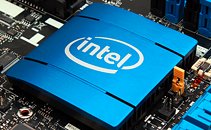Wednesday, November 14th 2018

CPU Shortages Will Continue Into the Second Quarter of 2019 According to Asustek CEO
A few weeks ago we talked about Intel problems in the production chain. The semiconductor giant was facing a shortage of 14 nm CPUs probably due to Intel allocating volumes from the same 14 nm++ node for its upcoming 9th Generation Core processors. That caused a clear rise in the prices of processors like the Core i7-8700K, which had a launch price of $359 and was hard to find for less than $400 a month ago. Prices have relaxed since then, but are still higher than their launch ones.
Intel's processor shortage could continue in the coming months, and in fact Jerry Shen, CEO of Asustek Computer, explained how the problem will continue until at least the second quarter of 2019. In his words, "the continued CPU supply crunch, escalating US-China trade disputes, and increasing competition in the notebook segment in Europe have pressed down Asustek's "operational visibility" for the fourth quarter of 2018 to the lowest level of 20% compared to an over 50% seen in previous years".Intel has tried to solve the problem, but the priority in the production of the processors of the Xeon and Core families has made that CPUs for the entry-level have been especially affected by this shortage. Shen noted though that "with Intel maintaining its shipments of CPUs to the server and gaming PC sectors, Asustek's gaming PC business has seen little impact from the CPU shortfalls". Intel's reduced supply has been one of the reasons for the company's somewhat poor financial results, whose PC shipments will remain flat in the fourth quarter of 2018 compared to the previous quarter.
Source:
DigiTimes
Intel's processor shortage could continue in the coming months, and in fact Jerry Shen, CEO of Asustek Computer, explained how the problem will continue until at least the second quarter of 2019. In his words, "the continued CPU supply crunch, escalating US-China trade disputes, and increasing competition in the notebook segment in Europe have pressed down Asustek's "operational visibility" for the fourth quarter of 2018 to the lowest level of 20% compared to an over 50% seen in previous years".Intel has tried to solve the problem, but the priority in the production of the processors of the Xeon and Core families has made that CPUs for the entry-level have been especially affected by this shortage. Shen noted though that "with Intel maintaining its shipments of CPUs to the server and gaming PC sectors, Asustek's gaming PC business has seen little impact from the CPU shortfalls". Intel's reduced supply has been one of the reasons for the company's somewhat poor financial results, whose PC shipments will remain flat in the fourth quarter of 2018 compared to the previous quarter.


18 Comments on CPU Shortages Will Continue Into the Second Quarter of 2019 According to Asustek CEO
p.s. not all cpus are belong to intel
I see AMD like a crack addict. They had a good life, then they got addicted to crack and they ended up homeless and sleeping in shallow ditches till someone pulled them out and took them to rehab. AMD are doing good now. but they can still relapse and end up being addicted to crack and sleeping in ditches again. if the people that helped them leave the company... They will lose momentum
I hope this doesnt happen and AMD will continue to get stronger. But what you see here isnt AMDs full potential... There is more to come or at least im hoping there is.
I mean, people get upset if an AMD product is $10 higher than what they where expecting and prefer to shoot themselves than buying it.
At the same time they will blame Intel and Nvidia for their pricing, but they will push their hand deeper in their pocket and throw away $100-$300 more for Intel's/nvidia's latest offering.
I think a "well done Intel" without the "LOL" part is much closer to reality. We have to give them credit for managing to keep breaking records for revenue without even having enough product to sell.
Tomorrow Nvidia might break records in profit margins while at the same time everyone is blaming them for the RTX pricing.
It's a simple "well done" to both firms. That "LOL" goes to us.
And then there is also their never-ending desire to increase profits, regardless of the impact on it's customers.